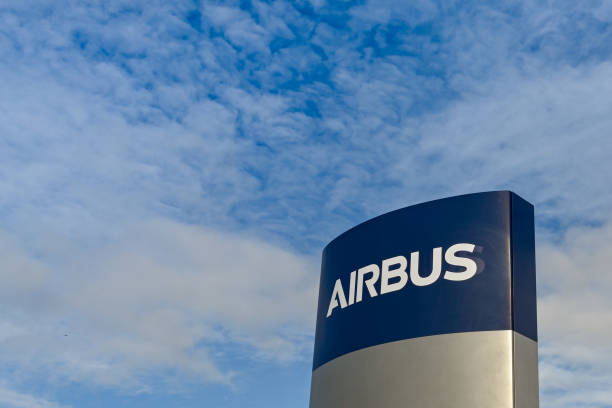
In a move that underscores the complex dynamics of the aerospace industry, Airbus, the titan of European aviation, has announced a strategic decision to issue a special dividend, marking a significant moment for its investors. This decision arrives amidst the backdrop of a fresh €200 million charge related to challenges within its Space business, illustrating the multifaceted challenges and opportunities Airbus navigates in its quest for innovation and market leadership.
Financial Performance and Shareholder Returns
In 2023, Airbus showcased resilience and strategic acumen, reporting a 4% increase in core adjusted operating profit to €5.8 billion, alongside an 11% surge in revenue to €65.4 billion. These figures not only reflect Airbus’ robust performance but also its capacity to adapt and thrive in a fluctuating market environment. The company’s forward-looking stance is further evident in its forecast for the core profit to range between €6.5 billion and €7.0 billion in the upcoming year.
Despite these strong financials, Airbus’ fourth-quarter adjusted earnings slightly missed market expectations, totaling €2.21 billion. This discrepancy highlights the unpredictable nature of the aerospace sector, particularly in periods of post-pandemic recovery and technological shifts.
In response to surpassing the €10-billion net cash threshold—a benchmark previously identified for enhanced shareholder returns—Airbus proposed an unchanged regular dividend of €1.8 per share and introduced a special dividend of €1 per share. This move, however, was met with a modest decline in share prices, approximately 1%, indicating investor sentiments possibly swayed by cautious 2024 forecasts and the absence of new information on broader share buyback initiatives.
Strategic Decisions and Market Dynamics
Airbus’ strategic dividend decision reflects a commitment to returning value to shareholders, amidst its sustained cash generation superiority over its main competitor, Boeing. The decision to opt for a special dividend over a share buyback signifies Airbus’ intent to swiftly reward investors while adhering to its financial distribution promises.
The company’s ambition to deliver around 800 jets in 2024, despite announcing a delay in the A321XLR single-aisle jet’s entry to service, underscores its determination to maintain production momentum. This delay, moving the service entry from the second to the third quarter, reflects the intricate balance Airbus manages between innovation, production capabilities, and market expectations.
Production Targets and Industrial Strategy
Airbus CEO, Guillaume Faury, reaffirmed the company’s commitment to achieving a significant production milestone—75 single-aisle jets per month by 2026. This goal is pivotal to Airbus’ industrial strategy, especially in the high-demand single-aisle jet market. Despite some suppliers’ cautious outlook, reflecting a current production rate of around 50 jets per month against a planned 58 by the end of 2023, Faury’s reassurance aims to align expectations and investment plans across the supply chain.
Innovations and Future Directions
Looking ahead, Airbus is not only focused on current production targets but also on the future of aviation. Faury provided insights into the anticipated successor to the A320neo family, projecting an entry into service in the latter half of the next decade. This timeline, set against the backdrop of ongoing discussions and development efforts, suggests a strategic approach to introducing next-generation aircraft that balance technological advancement with market readiness.
Furthermore, Airbus’ commitment to sustainability is evident in its plans for the next narrow-body plane to be fully powered by Sustainable Aviation Fuel (SAF), acknowledging the significant scale-up required from the current 1% usage. The mention of a smaller regional plane project, ZeroE, powered by hydrogen technology and targeted for 2035, highlights Airbus’ long-term vision for a more sustainable and innovative aviation industry.
Challenges in the Space Sector
The €200 million charge in the Space business segment, bringing the total write-offs to €600 million for the year, underscores the volatility and competitive pressures within the aerospace sector. This development, particularly concerning the delayed OneSat family of telecom satellites, reflects the challenges Airbus faces against a backdrop of emerging low-cost satellite technologies and market entrants.
Airbus’ announcement of a special dividend amidst a new charge in its Space sector paints a picture of a company at the crossroads of challenge and opportunity. By balancing shareholder returns with strategic investments in innovation and sustainability, Airbus is navigating the complexities of the aerospace industry with an eye towards long-term growth and leadership. As the company moves forward, its ability to adapt to market dynamics, embrace technological advancements, and maintain financial discipline will be critical factors in shaping its future trajectory.
Featured image credit: Ceri Breeze via iStock
